This week is dedicated to teacher training. Last year when we did teacher training, I was working with one teacher and we did it when the students were on school vacation. I was able to give ideas and I showed some techniques, but if I did modeling, it was to Sarah and the teacher.
This year is very different in many wonderful ways. First, we have three teachers. Second, Veronika is very knowledgeable and has been with the project for over a year and really understands the point and why we need to change some of the teaching techniques. She is a mentor for the other two teachers and she directs them. Third, I got to do teacher training while children are present. That means that we are using a much more effective model of training, practicing, and more modeling by me, and some coaching as the children are present and they are working together. It is really awesome to see the teachers pick up so quickly on the new ideas, but also to have a vibrant conversation with Veronika about pedagogy and how to balance their traditional pedagogy with new ideas. We are slowing introducing new concepts, but at the same time because these children will go back to the typical methods of teaching in their general education classroom, we need to continue to respect these methods and find ways for them to learn in that situation. Some of these children have made astronomical gains that I didn’t expect. I think it will be critical to see how they continue to do in their general education classroom next year and the year after. Was this enough of a boost? Are they now learning from that teacher and that classroom?
This has brought me also to think more critically about training in other countries with different techniques that we typically use. First, they need to teach Swahili differently than I learned it, because it is their native language, but also because Swahili functions as a language much differently than English and some of the ideas like rhyming just don’t work well. Furthermore, I think that to make teaching methods sustainable they need to be modified and enhanced slowly so that there is buy-in and comfort with the procedures and teachers continue to use them. In addition, we want to develop a model that is transferable and sustainable across many schools in Tanzania. Because that involves working with many teachers and principals, we need cooperation amongst all. To gain that support and cooperation, it will be important to provide a model that has proven results but also is feasible and functioning with the resources available in a typical Tanzanian school. Change is slow, but then leads to last changes and lasting success.
Beyond the pedagogical techniques, I believe strongly that the growth has been made because of the individual attention that children have received. If you have been in a large classroom (70-100 students) in Tanzania or another country where class sizes are large with one or two teachers, you will observe that children fight to be noticed or to answer and make sure they are right or blend in and get lost in the crowd. Children give choral responses to questions and copy and fill in answers off the chalkboard. If they make many mistakes, they have to go back and do it again and again. Sometimes, they will copy off their neighbors, but that doesn’t help them to learn. While the best and brightest can thrive in this environment, many children in the middle get lost and may or may not catch up over time.
I have observed through the work on this project the real power of working children individually and in small groups doing much of the same thing as in a big class, but by giving them the opportunity to express themselves and frequent practice and feedback. Because these children come to work with Veronika and the other teachers in small groups 4-5 days a week, they receive an immense amount of feedback and support to learn their basic skills. Children with learning disabilities need that additional support and feedback. This alone has made huge difference. When children aren’t getting something, they notice and try something different. But, I think the most important change for many of these children is that they have found their voices. Some of the children I saw last year were timid and knew that they were not doing well in school and hid out of shame, because that was how some were taught to feel. They thought it was their fault or they were doing something wrong. This year, the children have come out of their shells and are confident and talk to us and joke with us. Many of them I see are smiling and more confident. Finding their voice is the best outcome, even though we can’t measure it.
We are focused on strategies to enhance literacy and math skills, but as I mentioned earlier in other posts, we work on many different skills.
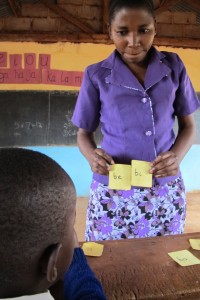
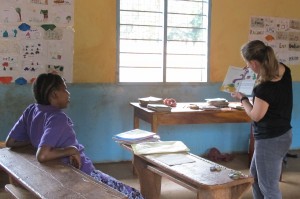
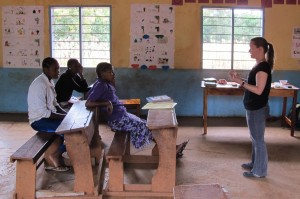
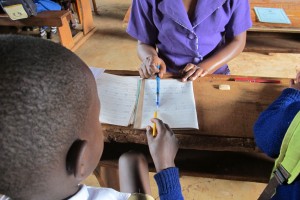
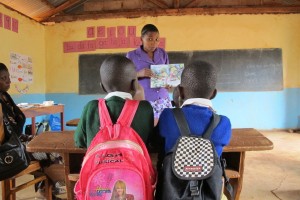
The results over time are inspiring and your observations about introducing change to these systems that are wide-spread in Africa is insightful and pertinent. Keep up the good work.
PassTIP의 덤프선택으로HP HPE0-V27-KR인증시험에 응시한다는 것 즉 성공과 멀지 않았습니다. 여러분의 성공을 빕니다.
What a remarkable article, thank you for your generous sharing. Enhance your IT knowledge with free HQT-4420 latest test vce free. Wishing you the best in all your exams!
I am so grateful for your share, this article is truly impressive! Free CTS new dumps questions resources for exam success. Wishing you the best!
Thank you for sharing such an insightful and uplifting article! The Cost effective CTFL4 dumps resources are outstanding, and they come with no cost.
由于IT行業的競爭力近年來有所增加,如果您需要提升自己的職業發展道路,ACAMS CAMS認證就成為基本的選擇條件之一。而通過CAMS考試被視為獲得此認證最關鍵的方法,該認證不斷可以增加您的就業機會,還為您提供了無數新的可能。所有考生都知道我們的ACAMS CAMS考古題產品可以幫助您快速掌握考試知識點,無需參加其它的培訓課程,就可以保證您高分通過CAMS考試。
The content is top-notch, liking it right now. Free C1000-161 latest test dumps exam papers available. Best of luck to everyone!
Thank you for your insightful article, it’s truly eye-catching. The content in DOP-C02 training materials is detailed and free, designed to aid in your studies.
목표를 이루는 방법은 여러가지가 있는데 어느 방법을 선택하면 가장 빨리 목표를 이룰수 있을가요? ITIL인증 ITIL-4-Foundation시험을 패스하는 길에는DumpTOP의ITIL인증 ITIL-4-Foundation덤프를 공부하는 것이 가장 좋은 방법이라는것을 굳게 약속드립니다. DumpTOP의ITIL인증 ITIL-4-Foundation덤프는 시험문제에 초점을 두어 제작된 공부자료이기에ITIL인증 ITIL-4-Foundation패스를 가장 빠른 시일내에 한방에 할수 있도록 도와드립니다.
關於C_WZADM_2404認證考試的相關資料,有很多網站都可以提供。但是,他們都不能保證考試資料的品質,同時也不能給你考試失敗就全額退款的保障。比起那些普通的參考資料,KaoGuTi的C_WZADM_2404考古題完全是一個值得你利用的工具。在KaoGuTi的指導和幫助下,你完全可以充分地準備考試,並且可以輕鬆地通過考試。如果你想在IT行業有更大的發展,那你有必要參加IT認證考試。如果你想順利通過你的IT考試嗎,那麼你完全有必要使用KaoGuTi的考古題。
Clicking like on this amazing content! Free C-THR94-2405 reliable study guide free questions are shared. Good luck with your exam preparation!
Thank you for bringing such an extraordinary article! Wishing you success! Here’s the free B2C-Commerce-Developer Best preparation materials exam content.
Haben Sie gedacht, wie Lpi 303-300 Zertifizierungsprüfung leicht bestehen? Haben Sie die Geräte finden? Wenn nein, erkläre ich zu Ihnen. Es gibt viele Methoden, die 303-300 Prüfung zu bestehen. Sehr fleißig die entsprechenden Bücher zu lesen, ist eine Methode. Machen Sie jetzt das? Aber diese Methode kostet dich viel Zeit und kann den Erfolg vielleicht nicht erreichen. Und Gibt es nicht genug Zeit für Sie, wenn Sie sich mit der Arbeit sehr beschäftigt sind? Lassen Sie Lpi 303-300 Dumps probieren. Diese Unterlagen können den Erfolg erreichen, woran Sie nicht glauben könnten.
I can’t help but hit like—this content is that good. Here’s the C-THR92-2411 accurate study material exam that helped me secure a promotion and raise, and it’s free today for everyone. Wishing you success in your career path!
Your article was very memorable, thank you for sharing it. With the 300-610 Preparation Store, I was able to secure a promotion and salary hike. It’s now available for free to all. Good luck on your career growth!
The article is very rich in content, and I feel that I have benefited greatly. Get the free L4M1 Pass-guaranteed dumps exam materials now—promotion and salary increases are within your reach!
This is awesome, I’m liking it instantly. I’m sharing C1000-027 Latest Dumps resources for free. Wishing you all the best!
This is a truly extraordinary piece of work, thank you for sharing. Latest test CPQ-301 questions vce offers high-quality materials without any charge.
Thank you for sharing such a memorable article, it really touched me. The Google-Ads-Video PDF VCE exam is on the horizon. Wish me luck!
This article is absolutely brilliant, thank you for sharing. This Authorized 1Z0-1050-23 certification helped me achieve a promotion and salary increase. Now it’s free for everyone. Wishing you all a smooth path to promotion!
힘든ATLASSIAN ACP-620시험패스도 간단하게 ! PassTIP의 전문가들은ATLASSIAN ACP-620 최신시험문제를 연구하여 시험대비에 딱 맞는ATLASSIAN ACP-620덤프를 출시하였습니다. PassTIP덤프를 구매하시면 많은 정력을 기울이지 않으셔도 시험을 패스하여 자격증취득이 가능합니다. PassTIP의 ATLASSIAN ACP-620덤프로 자격증 취득의 꿈을 이루어보세요.
The content is so good, I’m liking it immediately. Improve your IT abilities and access free New EUNS20-001 test online. Best of luck with your exams!
The content is incredible, I don’t even have to think before liking it. CWDP-304 latest test passing score offers a broad range of material free of charge, hoping it supports you.
我們Fast2test CIPS的L4M5考試的試題及答案,為你提供了一切你所需要的考前準備資料,關於CIPS的L4M5考試,你可以從不同的網站或書籍找到這些問題,但關鍵是邏輯性相連,我們的試題及答案不僅能第一次毫不費力的通過考試,同時也能節省你寶貴的時間。
クライアントは、支払いが完了するとすぐに、当社の製品をダウンロードし、IIA-CIA-Part1-JPN学習教材を使用できます。私たちのシステムは、支払いが成功してから5〜10分後にIIA-CIA-Part1-JPN学習準備をメール形式でクライアントに送信します。メールはリンクを提供します。クライアントのみがリンクをクリックすると、すぐにソフトウェアにログインしてIIA-CIA-Part1-JPNガイド資料を学習できます。クライアントがIIA-CIA-Part1-JPNトレーニングクイズを購入する限り、すぐにCertShiken製品を使用して時間を節約できます。
Your article is absolutely awe-inspiring, thank you for sharing! Best of luck with your exams! Free 312-50v13 reliable study guide ppt exam papers are now available!
I feel much more informed after reading that piece. Sharpen your IT skills by accessing free ACD301 reliable test questions fee. Wishing you all the best!